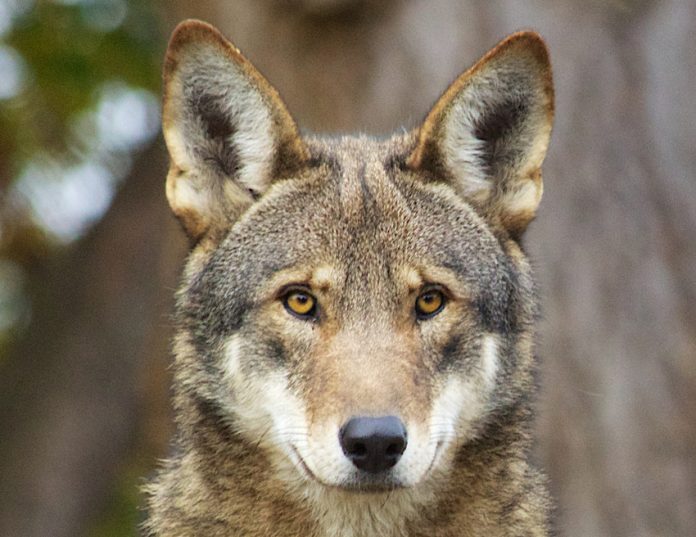
Tragically, Only 9 Critically Endangered Red Wolves Remain In The Wild; A New Lawsuit Is Pushing For A Recovery Plan To Save Them
By Lauren Lewis
You can help all animals and our planet by choosing compassion on your plate and in your glass. #GoVeg
RELATED ARTICLES
Amazon Faces Growing Backlash Over Selling Cruel Donkey-Hide Gelatin Products
Animal welfare advocates representing millions of people around the world gathered at Amazon HQ2 to hand-deliver over 370,000 petition signatures demanding that Amazon ban...
Man Charged With A Felony For Leaving His Dog Tied To A Fence During Hurricane Milton
A 23-year-old man has been charged with aggravated animal cruelty, a third-degree felony, after footage of his abandoned dog went viral just before Hurricane...
Colorado Officials Call Off Search For Wolf Pup Left Behind After Copper Creek Pack Was Captured
A picture of the suspected fifth wolf pup of the Copper Creek pack. Photo by: Colorado Parks and Wildlife
Conservationists and wildlife advocates are outraged...
Popular stories
News
Wayward Sea Lion Rescued From Busy San Diego Freeway Last Month Is Thankfully Released Back Into His Ocean Home
Photo from San Diego CHP, Facebook
It has been quite an eventful year so far for an adventurous male sea lion in San Diego, California. A...
News
National Wildlife Federation Receives $25 Million Annenberg Challenge Grant For World’s Largest Urban Wildlife Crossing To Save Santa Monica Mountain Lions
Photo by: Living Habitats/ National Wildlife Federation
A record $25 million conservation challenge grant from Wallis Annenberg and the Annenberg Foundation was just given to...
News
Walt Disney World Resort Helps To Rehabilitate & Release A Manatee Named Plantaina That Was Rescued After She Was Abandoned At Less Than A...
Animal care experts from Walt Disney World Resort recently assisted the Florida Fish and Wildlife Conservation Commission with the successful release of a 680-pound...


